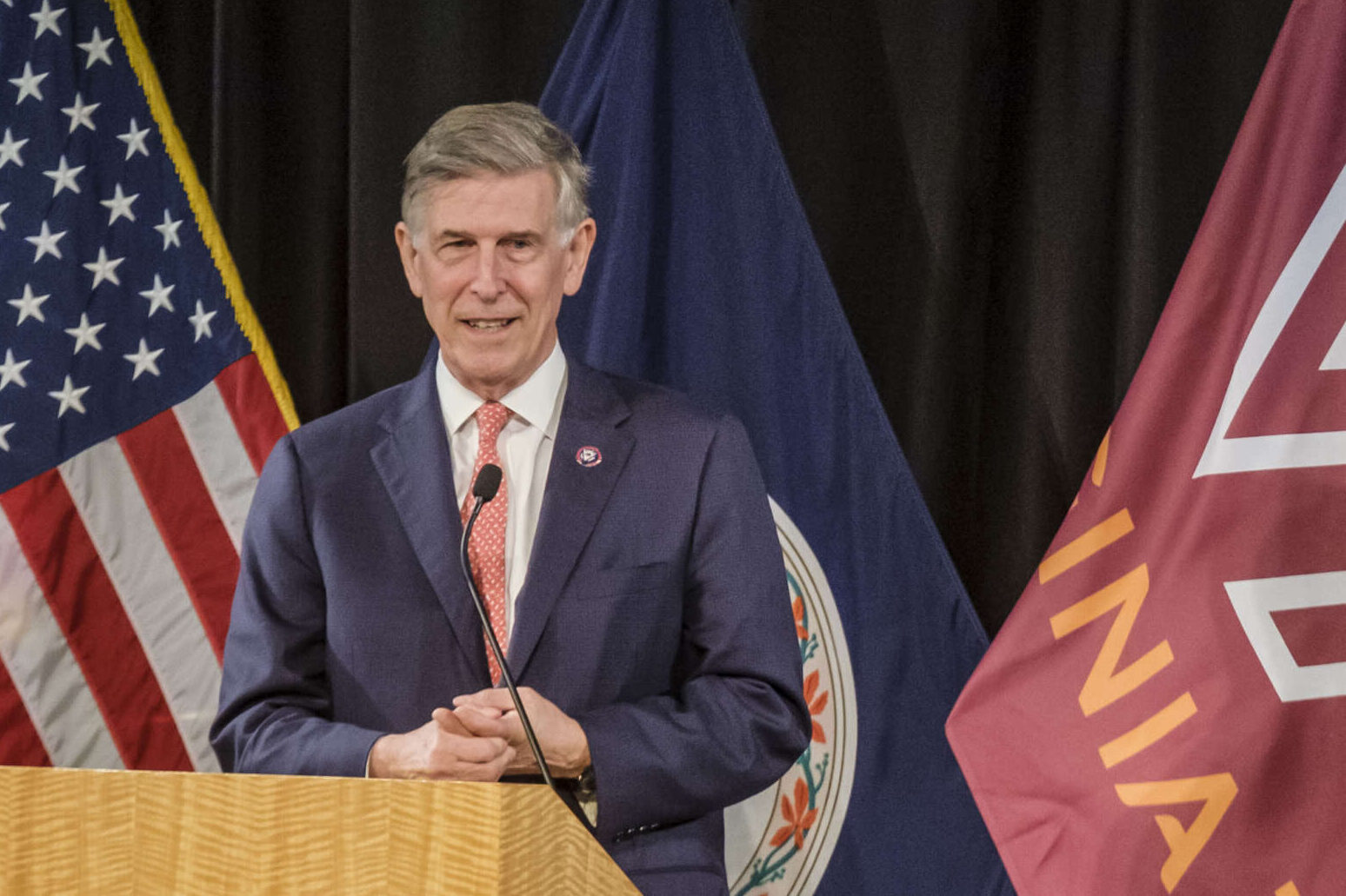
Rep. Don Beyer is taking a leading role in Congress to address what he says is one of the most pressing issues this century: the regulation of artificial intelligence.
This year, Beyer (D-Va.) and a bipartisan group of colleagues intend to tackle a variety of AI-related issues, including the creation of deep fakes, copyright infringement and enhancing privacy protections.
Although the Congressman recognizes the difficulty of keeping pace with AI’s rapid advancements, he told ARLnow that the primary focus is on current threats rather than trying to predict future uses.
“I think we’re coming pretty quickly to understand that we can’t regulate the math or the computer science,” he said in an interview this week at his office on Capitol Hill. “We’re regulating end uses. So, if there’s bias in AI, we need to make sure that we’re saying that’s unacceptable. If they’re invasions of privacy, we need to say there’s that’s not acceptable. Here are the consequences.”
It is fitting that Arlington’s member of Congress has taken an interest in AI, given the numerous local startups also trying to innovate the technology and mitigate its potentially adverse effects. Beyer has gone so far as to enroll part time at George Mason University to pursue a master’s degree in artificial intelligence.
So far, he has completed nearly six out of nine prerequisite courses, including pre-calculus, calculus, multivariable calculus, discrete mathematics, Python three and object-oriented programming. He has several more years to go to complete his degree, however, because he is only taking one class per semester.
“So, probably, it’s going to be four more years before I get it,” Beyer said. “I’m hoping to do it before I’m 80.”
Given his background, Beyer has taken on prominent roles in several AI-focused groups on Capitol Hill, serving as vice-chair of the New Democrat Coalition AI Working Group, and is also member of former House Speaker Kevin McCarthy’s bipartisan AI working group.
Earlier this week, he was appointed to a new 12-person bipartisan Artificial Intelligence Task Force that will be responsible for drafting a report on AI. The goal of the task force is to help elected officials understand its societal impact and guiding Congress in curbing potential fallout, Beyer says.
“Every technological breakthrough throughout the history of mankind… people have been displaced — agricultural revolution, industrial revolution, Information Revolution, the development of wheels, whatever. But we’ve always ended up with more jobs than we had before,” he said.
“But nothing has ever happened as quickly as this has, so you don’t get 100 years to adapt to the change of [AI],” Beyer continued. “You get a couple of years [to adapt] to the enormous changes that will come from it.”
Congress has already introduced dozens of AI-related bills — Beyer claims the number official number is close to 200 — aimed at addressing issues such as protecting people’s likeness and voice, ensuring AI-made content is clearly marked and stopping the spread of fake audio or video that could mislead voters about election candidates.
Beyer has also co-sponsored multiple bills, including the CREATE Act and AI Foundation Model Transparency Act, intended to enhance transparency about AI data training and equip the public, particularly small businesses and organizations, with the resources and tools needed for innovation.
He also think that government may have a role in supplying training data for AI models.
“One of the initiatives that I hope will advance is using government to create a big database — like OpenAI has — to train models on, but that didn’t take 6 trillion words off the internet which ChatGPT 4 did,” he said. “Rather, it is a curated dataset that’s smaller but has almost everything that you would want out of Wikipedia, the Encyclopedia Britannica, or whatever else.”
For the moment, most bills have to do with safety, transparency and consumer protection, says Beyer. Still, he raises another crucial question: whether the United States can keep pace with China in the AI race.
“The biggest issue there is, is China ahead of us?” Beyer said. “Can we afford to have China beat us and AI? And all the [intelligence] people say we cannot afford to lose the AI race.”
Beyer says the United States will also need to speed up domestic production of semiconductor chips that enable AI to solve complex problems faster.
In 2022, Congress passed the CHIPS and Science Act, which allocated a $53 billion investment in U.S. semiconductor manufacturing, research and development, and workforce, complemented by hundreds of billions in private sector investments over the last year. Still, the U.S. currently imports the vast majority of semiconductor chips from other countries, including Taiwan, which raises national security concerns given China’s increased aggression toward the small island nation.
“If China takes over Taiwan… our source of chips goes away,” Beyer said. “So, it’s very important for our national security, that we build all these chip factories.”
Despite the frequent political gridlock on Capitol Hill, Beyer has observed that when it comes to AI regulation, there is a rare unity between both political parties. To Beyer, that is a hopeful sign for legislation that helps ensure AI progress continues — safely.
“The bipartisan sense here is we don’t want to do anything heavy handed that would slow down the creativity of the industry,” he said. “We will want to guard guard against the downside the risks, but this is our future.”

